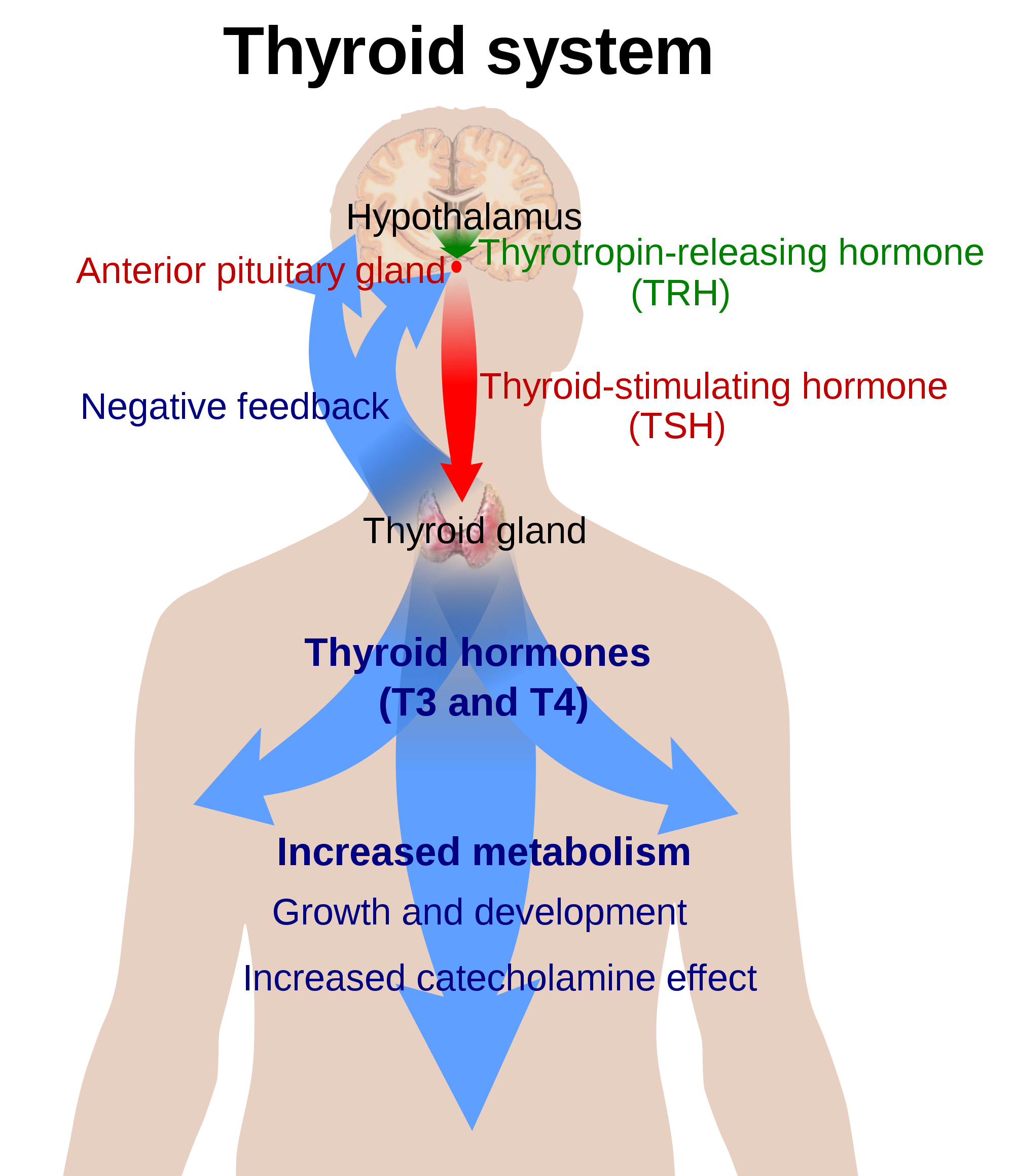
The thyroid gland is important for many reasons. For instance, it helps your body effectively use energy so you’re not tired all the time, it keeps your brain and other organs functioning at optimal levels, and it even helps regulate your body temperature. That’s why doctors sometimes test its function if there is the potential for problems in any of these areas.
Fortunately, determining whether your thyroid is overactive (hyperthyroidism), underactive (hypothyroidism), or working just fine can be done with a simple blood test to determine your various thyroid hormone levels. The specific hormones assessed in these tests are TSH (thyroid stimulating hormone) and, if necessary, T3, T4, and Free T4.
According to Thyroid UK, a normal TSH result should be between 0.1 and 2. If it is less than that, it’s possible that your thyroid is overactive, requiring further testing of your T4 and Free T4 levels. And if it is over 2, then your doctor may suspect an underactive thyroid, which again requires further testing to figure out if this, in fact, is the case.
Based on normal thyroid variations according to different studies, Thyroid UK indicates that tests taken in the early daytime hours tend to provide the most accurate results. Further, the UK also generally accepts higher TSH levels before suggesting any sort of treatment (like as high as 10, which is four times the limit set in other countries), which may potentially be putting people at harm.
In the end, it is important to realize that your health should be your first priority, so if your TSH numbers are higher or lower than what they should be, talk to your physician to learn what that means for you and what your options are. The more informed you are, the better the decisions you will make when it comes to your own health and wellness.








